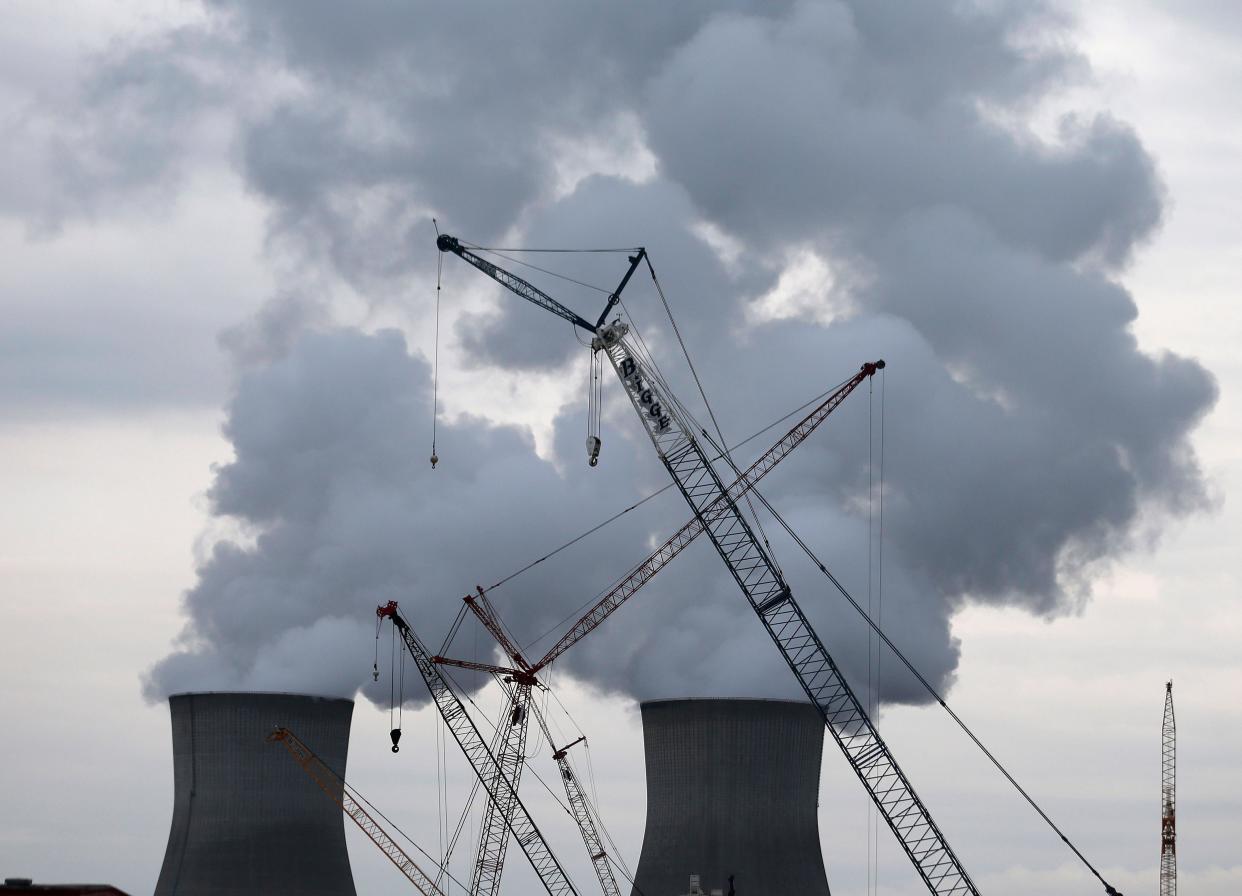Nate Monroe: Federal prosecutors will explore Plant Vogtle in JEA trial

COMMENTARY | Federal prosecutors said this week they intend to dig into JEA's financial entanglement with a controversial nuclear expansion project in Georgia during the upcoming trial of the utility's former top executives, re-visiting a complicated saga that briefly made JEA a pariah in the world of public power.
The grand jury indictment against former JEA CEO Aaron Zahn and CFO Ryan Wannemacher made no direct mention of Plant Vogtle, where two new nuclear reactors have been under construction for well over a decade, but attempting to untangle JEA from an ironclad purchase-power agreement with the co-owners of that expansion project was Zahn's first high-profile foray into controversy as the agency's chief executive. It also played a role in Zahn's narrative about JEA's purported financial decline, a fiction prosecutors allege Zahn used to manipulate the board of directors into allowing him to pursue his true goal: selling the city-owned utility to a private operator.
The indictment against Zahn and Wannemacher accuse them of secretly conspiring to skim profits off the top of any such sale; both men pleaded not guilty last year.
Before privatization had consumed his tenure, Zahn first set his sights on Plant Vogtle.
The utility's board of directors inked an agreement in 2008 to purchase power from two new nuclear reactors at the site — taking action in an era during which industry analysis believed nuclear power was poised for a renaissance. But in the succeeding years that project became remarkably star-crossed: years behind schedule and billions over budget, while the original contractor filed for bankruptcy and bailed out.
JEA's agreement to purchase power, which included a requirement to help pay for construction costs, was uncapped, meaning its own financial obligations grew as the Vogtle reactors ballooned in cost. By the time Zahn took over as interim CEO in 2018, the agency was facing billions in costs while the reactors' completion remained elusive. He railed against the agreement his JEA predecessors had signed and complied with and, along with City Hall, filed suit against JEA's partner on the Vogtle project, calling the contract "extortionate."
Neither JEA nor city officials at the time publicly linked their fight to extricate the agency from its Vogtle agreement with a future sale of JEA, but others saw the logic: Removing a costly liability from JEA's books would make the utility a far more attractive asset to buy.
"Jacksonville’s new young Republican mayor is out to shrink government, and wants to privatize JEA — quickly, while the market is 'right.' He says within 3-5 months," an attorney that represented JEA in its Vogtle litigation wrote in a strategy memo shortly before Zahn took over as interim CEO. "Obviously, Plant Vogtle and the (agreement) greatly affect valuation."
A consulting firm working for a future JEA bidder — Florida Power & Light — also appeared to understand that Vogtle was a useful tool to undermine public confidence in JEA, and it backed a front group, Fix JEA Now, that adopted rhetoric linking Vogtle to a pro-privatization argument. "JEA needs to be fixed or Jacksonville should get out of the electricity business altogether," the group's now-defunct website said.
Zahn's Vogtle campaign was ruinous. The lawsuit and a bizarre PR campaign JEA underwrote, which included placing billboard ads in Georgia bashing Vogtle, infuriated Vogtle's Georgia co-owners. The litigation prompted two of the nation's three major ratings agencies to downgrade JEA's credit, with one firm taking the additional step of downgrading some of City Hall's bonds as well. And Zahn's efforts to enlist help from federal regulators prompted pushback from JEA's peers in the world of municipal and public power. "I'm not aware of anybody who believes JEA has a strong argument for (federal) jurisdiction over this," the head of a large public power association told me at the time.
After the collapse of Zahn's later campaign to privatize JEA, it became clear in utility records that Zahn and his consultants had never devised a clean workaround to the multibillion-dollar liability. Although he had sold privatization as a way of saving JEA customers from dramatic rate increases, attributable to changes in the electric industry and JEA's Vogtle costs, utility records indicated that customers were going to get stuck with Vogtle costs even if a private company had gone through with a purchase.
Prosecutors said in a court filing this week they are planning to prepare "summary exhibits" on Vogtle, indicating they came to view JEA's nuclear saga as part and parcel of the larger fraudulent narrative Zahn is accused of creating to justify selling JEA.
Vogtle remains a substantial liability on JEA's books today, but the utility's leadership does not believe it represents an existential threat to the agency. And earlier this year one of the plant's two new nuclear reactors came online, meaning JEA is finally able to draw the zero-carbon power it had pined over for more than 15 years. The second unit is projected to come online next year.
The trial of Zahn and Wannemacher is currently scheduled for February, though the trial date has moved several times and there remain outstanding pre-trial disputes U.S. District Judge Brian Davis has yet to resolve.
Nate Monroe is a metro columnist whose work regularly appears every Thursday and Sunday. Follow him on Twitter @NateMonroeTU.
This article originally appeared on Florida Times-Union: Nate Monroe: Federal prosecutors will explore Plant Vogtle in JEA trial

